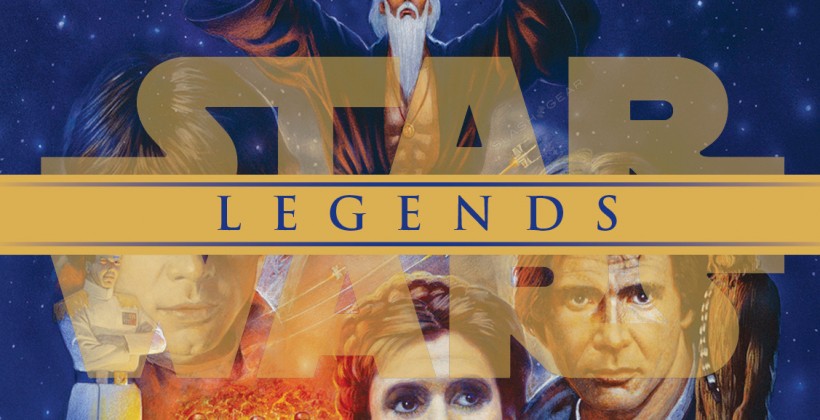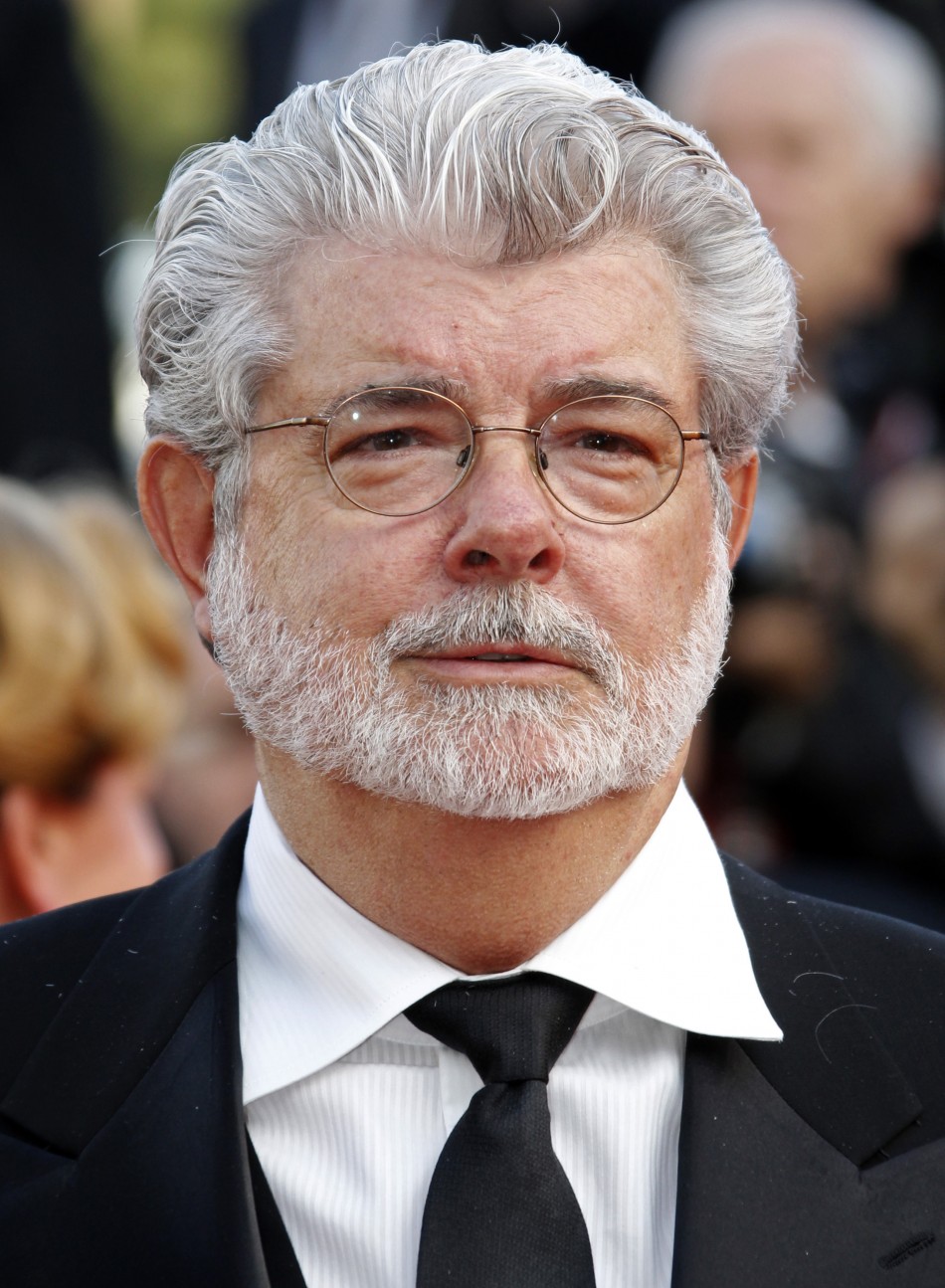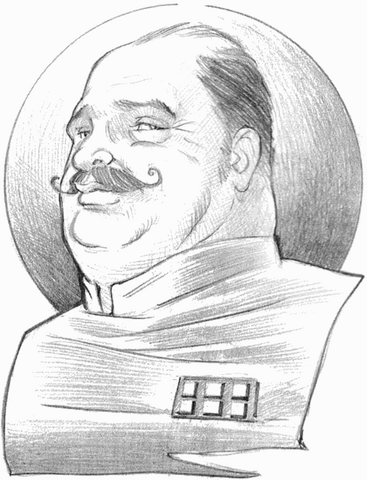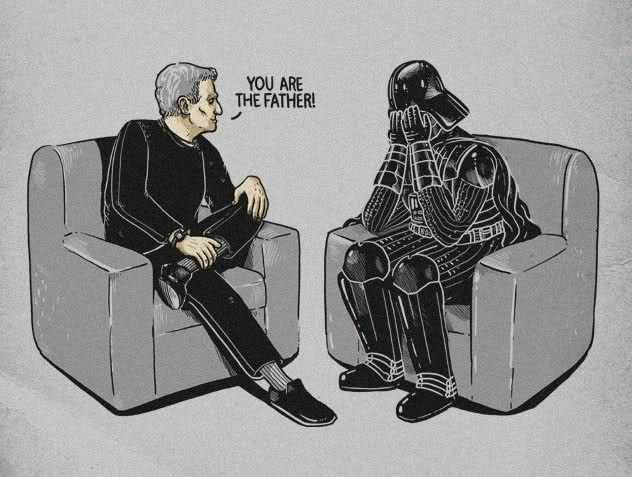
Statement from the Editor: I don’t like seeing people get shouted down. Regardless of my own feelings, if I perceive a reasonable opinion as being forced out of the conversation, I will generally go out of my way to give it a fair hearing—I mean, broadly speaking, that’s what this whole site is for.
So a couple months back, I reached out to the #GiveUsLegends people.
“Open letter to the #GiveUsLegends campaign: while your cause is not abundantly interesting to me personally, I do admit that there is a fair case to be made here. That being said, ETE has an open submissions process, and I pride myself on a willingness to engage unpopular opinions. If anyone associated with #GiveUsLegends wants to pitch me a piece making the case for continuing the Legends universe in a way that meets our format and tone guidelines, it would be given fair consideration.”
Well, I didn’t hear back from them. About a month later, Anger Leads To Hate arrived—Eric Geller’s compelling, exhaustively-researched, and vital exposé on the movement for TheForce.Net. As the backlash against this, frankly, childish campaign of hashtivist harassment against Del Rey (of all people) reached its height, one person did express a desire to speak up: two-time Eleven-ThirtyEight guest contributor Lance Henning, who sympathized with #GiveUsLegends’ cause while nevertheless lamenting their methods and public image.
So Lance and I began developing what you’re about to read. While at the end of the day we’re on opposite sides of this thing, Lance remains a very fair and level-headed commentator, and he went to great lengths, with my oversight, to comprehensively present both the “pro” and “anti” reboot arguments with equal vigor and rationality.
So vigorous was he, in fact, that the final article ended up at well over four thousand words. To that end, I made the editorial decision to break it in half—“anti-reboot” today, and “pro” on Monday. While I’m of the opinion that our final product is the most balanced treatise one could possibly produce on this subject, given that I’m only publishing one side of the argument today—and given the emotionally-charged nature of the topic—I made the further editorial decision to disable comments on this half of the piece. Once Part II is online, readers are more than welcome to share their reactions to Lance’s presentation in total, and if we’re lucky there may even be a reasonable conversation to show for all of this. But for now, with no further ado, I’ll turn this thing over to Lance. – Mike Cooper, EIC
When Disney bought Lucasfilm, and Star Wars with it, hopes were high from the vast majority of fans. New life was going to be breathed into the franchise and a cultural juggernaut with unlimited resources would be behind it. That perspective changed for many fans in the following months with one sentence:
“In order to give maximum creative freedom to the filmmakers and also preserve an element of surprise and discovery for the audience, Star Wars Episodes VII-IX will not tell the same story told in the post-Return of the Jedi Expanded Universe.”
Suddenly the Expanded Universe that described thousands of years of history, albeit fictional, in the universe created by the movies was gone. This was stunning to a huge number of fans; even those who expected a different story to unfold after Return of the Jedi did not expect those stories before the original trilogy concluded to be affected.
There have long been contradictory statements about how “canon” the Expanded Universe was. Compare George Lucas’s comments in 1995’s edition of Splinter of the Mind’s Eye…
“After Star Wars was released, it became apparent that my story…was only one of thousands that could be told about the characters who inhabit its galaxy. But these were not stories I was destined to tell. Instead they would spring from the imagination of other writers, inspired by the glimpse of a galaxy that Star Wars provided.”
…to more modern comments by him from an interview in 2001:
“There are two worlds here, there’s my world, which is the movies, and there’s this other world that has been created, which I say is the parallel universe…. They don’t intrude on my world, which is a select period of time, [but] they do intrude in between the movies. ”

The big change seemed to follow the success of the prequels, when suddenly the Star Wars universe was no longer relying solely on the comics and books of the classic EU as it did in the 90s. So, while it is unquestionably Disney and Lucasfilm’s choice as owners to make the decision as to what will and will not ‘count’ going forward, a poll on the Jedi Council Forums showed that roughly half of long-term fans indicated that they would be decreasing or delaying their purchases of non-film material, suggesting that they felt that a complete reboot was the wrong choice, while the other half felt that it was necessary. Where those numbers stand now, and where they’ll stand in ten years is anyone’s guess; only time will tell.
Perhaps the most noticeable example of fan discontent with the decision is the #GiveUsLegends movement. While the most vocal group, they represent only part of one side the reaction, and because of the questionable comments of some, many other legitimate and more rational complaints about the reboot are easily dismissed. But some of those who defend the decision to start fresh have made equally, if not more, inflammatory comments and personal attacks. Tempers and emotions run high on both sides.
But why is there such intense emotion around this issue? Many franchises have multiple universes, some a few too many at that. Why is this decision so brutally polarizing?
* * * * *
Why should people be upset about the reboot? Because it was NOT necessary!
A lot of things happened in the Classic Expanded Universe over the past 38 years. Wars. Marriages. Births. Deaths. And these innumerable details led to a much richer and more detailed universe into which the heroes of the prequel and original trilogies stepped. Sure, there were contradictions, but in over three thousand published works, that’s not surprising. These were stories that people loved and came to enjoy, and for the vast majority it was one (mostly) logical, (mostly) linear narrative.
With a rich history and good will like that, why would you need to reboot the universe? There are, in fact, four good reasons to reboot any universe: 1) The existing universe is too complex and difficult to explain to new fans, 2) It dictates where things have to go in the future, 3) It goes in a direction that would be illogical or unpalatable and a reboot of the universe will make it easier to engage new fans and 4) Such a reboot opens up new storytelling possibilities. How many of those applied to the Classic EU?
1) It’s not that difficult to explain
One fan has made a several-hundred line YouTube title crawl explaining part of the post-ROTJ Classic EU. While I encourage you to view it for humor, it suggests that the Classic Expanded Universe must be explained in excruciating and unnecessary detail.
Over two-thirds of the Classic Expanded Universe occurs before Return of the Jedi, so keeping that material has no impact on the understanding of any film and it need not be explained. Only the post-Return of the Jedi Classic EU must be explained before Episode VII.
Bantam is often criticized for “warlord of the week” battles against surviving Imperials trying to rebuild the Empire against the advance of the New Republic’s return of democracy and freedom. How do you sum up all the events that happened between Palpatine’s death (the first one) and the Empire’s surrender? Well, in twenty-three words: Fifteen years after the Emperor’s death, the Empire surrendered, defeated as much by its own infighting as the advance of the New Republic.
That tells us everything we need to know about the Era. The Rebels won, formed a new government, and the Empire was led by a bunch of different people and lost. Does the audience need to know about Isard? Darksaber? Thrawn? The Pentastar Alliance? Even Pellaeon? No. They have no bearing on the events after Vision of the Future other than offhand references.

however is a must!
The NJO introduced a whole new villain, a galactic invasion by genocidal aliens, killed Chewbacca, and trillions. That can’t be nearly as easy to explain you say? No, it takes thirty-three words: Luke Skywalker’s New Jedi Order guards a fragile alliance as old enemies rebuild a galaxy shattered by civil war and a galactic invasion that felled the Solos’ friend Chewbacca and youngest son Anakin.
Hey wait a second! Half of that had nothing to do with the NJO! Indeed not, since the details matter as little as Thrawn’s art obsession once the war ends. You know there was an invasion. You know Chewbacca and Anakin died. You even know that Han and Leia got married and Luke rebuilt the Jedi Order. That in a nutshell covers every major event for the first twenty-five years after ROTJ in fifty-six words.
That leaves Legacy, by far the most convoluted era in all of Star Wars. Ahem: In trying to protect his family, Jacen Solo’s fall unleashed a legion of long-lost Sith and led to the public discrediting of the Jedi Order. And even that takes only twenty-six words. There is again no need to detail the second civil war, burning of Kashyyyk, or even Abeloth. Once those threats are dealt with they can be mentioned in as offhanded a way as Leia’s “you served my father in the Clone Wars”.
The entire classic EU that would have an impact on the sequel trilogy in any way (Legacy comics set 100 years in the future are excluded) can be explained in three sentences, totaling eighty-two words, one fewer than A New Hope’s title crawl. And arguably, Legacy of the Force may not even need to be explained (more on that next).
2) The Classic EU can easily be adapted to fit any Sequel Trilogy
It will be thirty-nine years between the releases of A New Hope and Episode VII in our world. Logically, as the original actors are reprising their roles, approximately the same time will have passed in-universe.
That means that the setting of the sequel trilogy would most likely fall (in universe) 30-some years ABY. After the New Jedi Order series but before LOTF. Conveniently there is an eleven-year gap between those series broken only by the Dark Nest trilogy, a relatively minor event spanning only a few months with few long-term implications.
Only the EU to the end of the NJO needs to be explained to set the sequel trilogy in this time period, and would allow the writers essentially complete freedom to do as they pleased with any plot they so desired.
The books of the Legacy era are indeed set after this time and would therefore dictate where the Sequel Trilogy would have to end if kept, and this is the one argument strongly against maintaining the classic EU.
This argument is, I admit, more speculative, but this is a relatively easy thing to overcome. The entire basis for these series grows out of Jacen Solo’s vision of a dark man on a throne. Those series could become that dark vision. All it requires is a reference at some point to a “vision”, be it in the movies or the new canon EU, opening up a completely blank future for the sequel trilogy to build, while also providing many interesting characters to reuse as desired.
While that may harken back to the infamous “dream season” of Dallas, it’s a mechanic that has been used before and worked quite well for that popular show. It would be the best of both worlds, not decanonizing anything, but opening up the future to allow writers, ahem, “maximum creative freedom”. And even if this was unpalatable, a partial decanonization would be preferable to the wholesale one that has been imposed.
3) The Classic EU is less confusing than the divided universe
The vast majority of the post-ROTJ universe can be explained in the space of a few words, and imposes fairly marginal limitations on the writers. The primary benefit to a rebooted universe is to make it easier for those unfamiliar with the old.
So the problem would be if the trilogy started in a place that new view could not accept. In an extremely unscientific study, I asked five good friends of mine who have never read a word of the EU (one who has never even seen Episodes II or III) what they thought happened after Return of the Jedi.
To summarize, all five agreed Han and Leia got married and eventually had children, Luke rebuilt the Jedi order, and democracy returned. The expected timelines varied widely, with the Empire falling instantly, and the Jedi’s return a decade later. When specifically asked about Luke’s family, four agreed he’d probably eventually have one, and only one thought he would only focus on the Jedi. Interestingly, none mentioned the ‘no attachments’ rule. And when specifically explained about the Vong and Chewie, there was some surprise, but general interest in learning more rather than disgust.
So, the classic Expanded Universe holds very few surprises to the casual fan, having done mostly what they expected to happen.
That leaves the argument that someone who picks up a one-off like The Crystal Star or Scourge off the shelves randomly might be confused as to why those novels are important.
But, those novels are still on the shelves. The new fan is going to have no idea after watching Episode VII what “Legends” means. While that word is deeply embedded in forum-goers’ minds, the casual public has no idea that it even exists at this point.
Picking up Heir to the Empire, and reading about Thrawn and the birth of Jacen and Jaina, will be far more confusing to someone who just saw a movie where Han and Leia never married or had kids, than to a fan who was introduced to a grown-up Jacen and Jaina on screen.
To provide two polar examples, Marvel comics are terribly difficult to engage new fans with because of their mind-boggling multiple universes, frequent reboots, and multiple ongoing series about the same, yet completely different, character. Dr. Who is twice as old as Star Wars, with equal or greater material. And while most of Star Wars is still easily accessible in print, large swaths of that universe no longer exist in any known format. Yet, rather than reboot the universe, the writers take time to construct logical ‘jumping on’ points where new fans don’t have to know everything that happened before but that knowledge makes what comes after much richer. That should have been the goal with Star Wars.
4) The reboot actually limits the ability to tell NEW stories
One of the best things about Star Wars is that even the movies themselves hinted at a broader universe. Han mentions running into a bounty hunter on Ord Mantell. Anakin and Obi-Wan joke about that Gundark’s nest. There’s the bounty on Han’s head. Over the years, these and many other stories have already been told in the Classic EU. But those works no longer exist. So now, rather than drawing on thousands of existing works to flesh out details that are already there, Del Rey, Marvel and even Lucasfilm are forced to re-create explanations that already existed rather than expand the universe.
Yes, Darth Vader apparently struggled with Alzheimer’s by the number of times he ‘discovered’ Luke’s identity, and Han was hunted by the entire Bounty Hunter’s Guild on Ord Mantell that one month, but if you wanted to know what various off-handed references were in the old movies, the stories were already there. Now, rather than being able to develop new ideas, and push the universe forward, Star Wars will be forced to play catch-up, filling in blanks that should already have been filled.
 Sure, there will be great stories told by doing so, but an equal number have been lost. And the potential for great stories about new concepts is reduced. Every opportunity to fill in one of these old gaps is an opportunity lost for something new. There’s no reason to think there won’t be throwaway remarks or references to off-screen action in the new movies, and rather than being able to focus on telling those stories, we must rehash what has already been done.
Sure, there will be great stories told by doing so, but an equal number have been lost. And the potential for great stories about new concepts is reduced. Every opportunity to fill in one of these old gaps is an opportunity lost for something new. There’s no reason to think there won’t be throwaway remarks or references to off-screen action in the new movies, and rather than being able to focus on telling those stories, we must rehash what has already been done.

One thought to “Analyzing the Emotional Response to the Great Reboot, Part I”
Comments are closed.